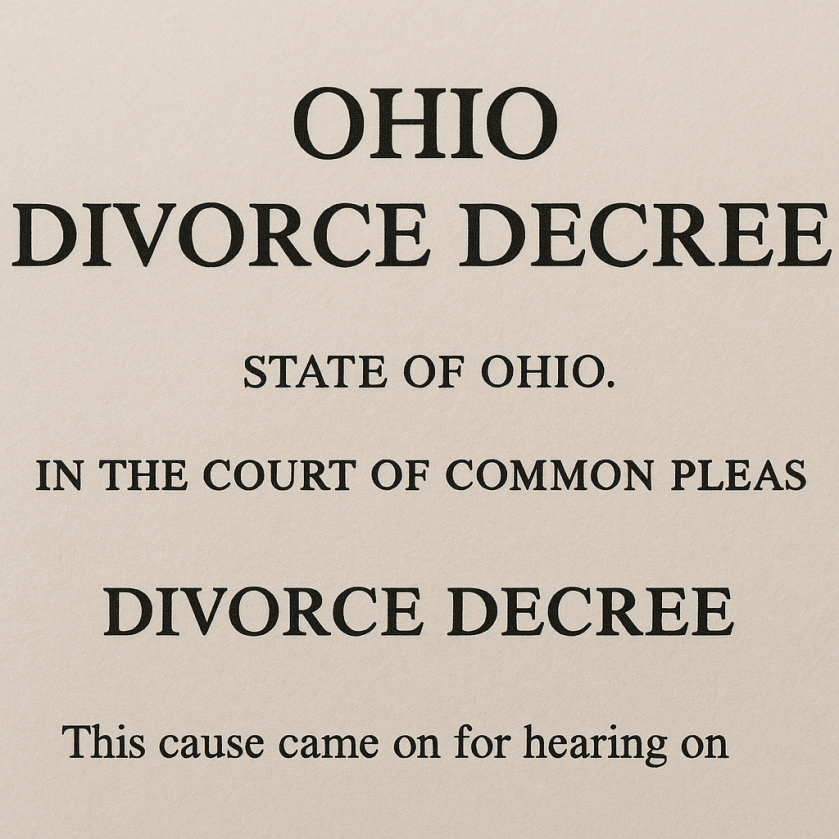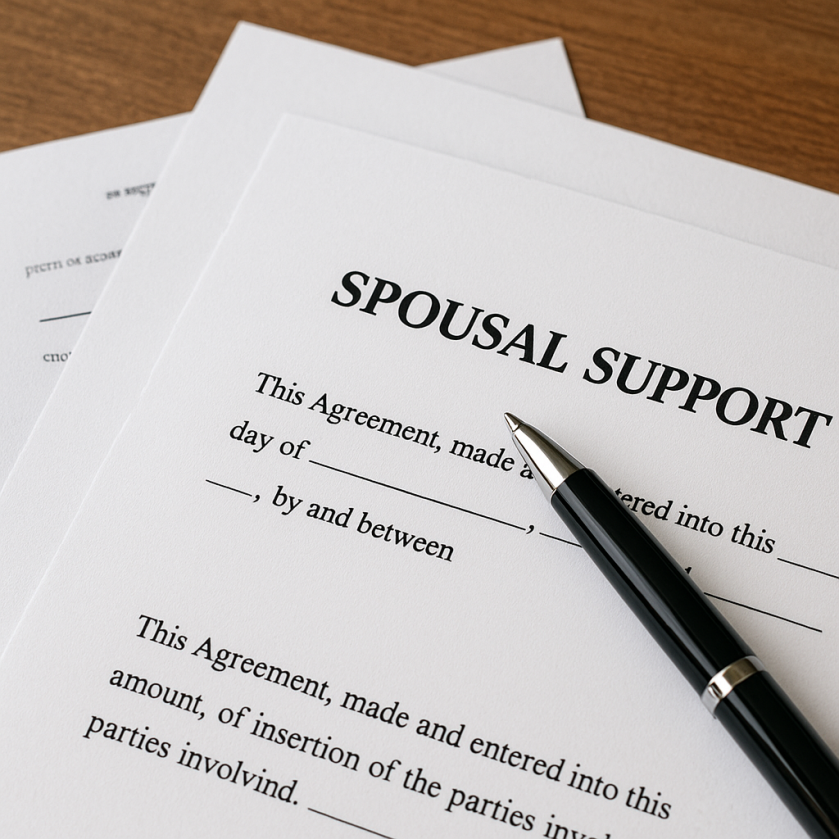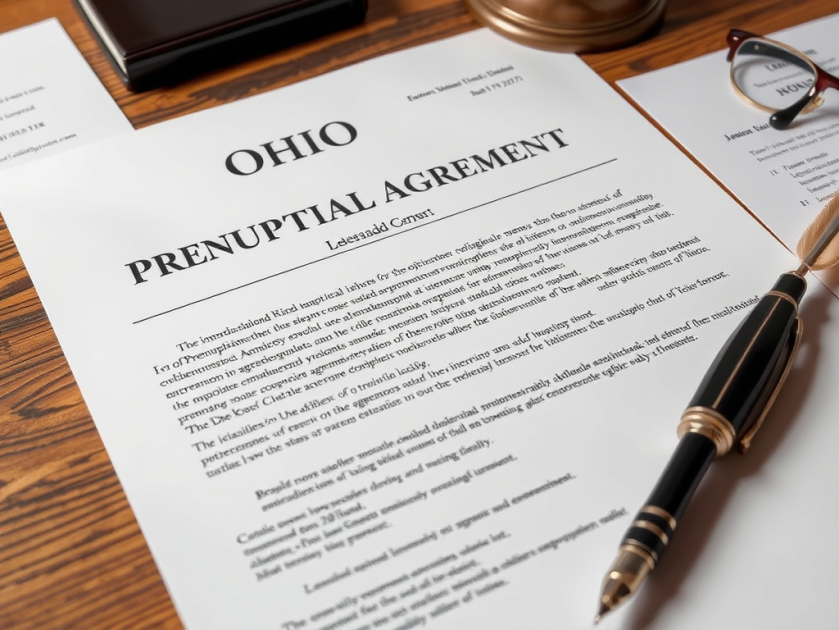Understanding Ohio Family Law Essentials
- Aug 15, 2025
- 8 min read
By Attorney Andrew Russ, an Ohio Family Lawyer serving Columbus and Athens

Understanding Ohio Family Law Essentials
By Attorney Andrew Russ, an Ohio Family Lawyer serving Columbus and Athens
Family transitions are emotional, complex, and deeply personal. Layer in legal requirements, and it’s easy to feel overwhelmed. This guide distills the essentials of Ohio family law so you can make confident decisions—whether you’re preparing for divorce or dissolution, resolving custody and parenting time, seeking or modifying child support or spousal support, considering a prenuptial agreement, or responding to a domestic-violence situation. As an experienced Ohio Family Lawyer, I help clients in Columbus, Athens, and surrounding Ohio counties navigate each step strategically and with compassion.
What an Ohio Family Lawyer Actually Does
A great starting point is understanding the scope of services most families need at some point:
Divorce & Dissolution: Filing, temporary orders, negotiations, settlement, trial.
Custody & Parenting Time: Establishing or modifying parenting plans and decision-making rights.
Child Support: Initial orders, deviations, enforcement, and modification.
Spousal Support (Alimony): When appropriate, amount, duration, and modifications.
Property Division: Identifying marital vs. separate property, valuation, and equitable division.
Prenuptial & Postnuptial Agreements: Drafting and reviewing to protect expectations and assets.
Paternity & Fathers’ Rights: Establishing legal parentage and ensuring meaningful parenting time.
Domestic Violence & Protection Orders: Immediate safety planning and court relief.
Juvenile Court Matters: Limited overlap for families (e.g., custody, support, or related issues).
Residency, Venue, and Filing Basics
Residency: One spouse must meet Ohio’s residency requirement before filing for divorce.
Venue: You typically file in the county where you or your spouse live.
Strategy Tip: Where you file can influence timelines and procedures; ask your attorney about local court practices in Franklin County (Columbus) vs. Athens County, for example.

Divorce vs. Dissolution vs. Legal Separation
Dissolution of Marriage is Ohio’s cooperative path: both spouses agree on all terms (property, debt, support, parenting) and file a joint petition. It’s typically faster, less expensive, and less confrontational.
Divorce is adversarial: one spouse files, and the court resolves disputed issues if you can’t settle. Many divorce cases still settle through negotiation or mediation before trial.
Legal Separation allows couples to formalize support and parenting arrangements without ending the marriage—useful for insurance or religious reasons.
Which is right for you? If you can reach consensus on the key issues, dissolution offers a streamlined path. If there are power imbalances, safety concerns, or major disagreements, a divorce filing may provide needed court oversight.
Temporary Orders: Short-Term Stability While the Case Proceeds
Courts may issue temporary orders to prevent chaos during a pending case. These can address:
Who lives in the marital home
Temporary parental rights and parenting time
Child support and interim spousal support
Who pays certain bills or maintains insurance
Pro tip: Gather pay stubs, budgets, and schedules early—well-prepared temporary motions often shape final outcomes.
Property Division: Equitable, Not Always Equal
Ohio uses equitable distribution. Courts classify property as marital (generally acquired during marriage) or separate (e.g., premarital assets, inheritances, certain gifts). Then they divide marital property fairly—fair doesn’t always mean 50/50.
Key considerations:
Valuation: Homes, retirement accounts, stock options, and closely-held businesses require careful valuation.
Separate vs. Marital Tracing: Documentation is critical; keep records that show the source of funds.
Debt Allocation: Marital debts are divided equitably too.
Tax Implications: The after-tax value of assets matters, especially with retirement accounts or capital gains.
Action step: Build a document set—deeds, mortgage statements, bank/retirement statements, titles, and any premarital agreements.

Spousal Support (Alimony): When, How Much, and How Long?
Spousal support is not automatic. Courts evaluate factors like income, earning capacity, the length of marriage, health, education, and contributions to the household (including child care and supporting a spouse’s career).
Amount & Duration: Tailored to need and ability to pay; long-term marriages can see longer support periods.
Modifiability: Whether support can be modified later depends on the court’s order or agreement terms.
Strategy Tip: Present a realistic budget and, if needed, a vocational assessment documenting employability and re-training timelines.

Parental Rights & Parenting Time: Best-Interest Focus
Ohio allocates parental rights and responsibilities based on the child’s best interests. Parenting plans typically address:
Decision-Making: Schooling, medical, and extracurriculars (joint or sole).
Parenting Time: Weekday/weekend schedules, holidays, summer breaks.
Logistics: Transportation, exchanges, and travel permissions.
Communication: Consistent methods, virtual contact, and co-parenting apps.
Courts consider factors such as each parent’s involvement, the child’s relationships, adjustment to home/school, and the willingness of each parent to facilitate a healthy relationship with the other parent.
Tip for fathers and mothers alike: Demonstrate reliability—on-time exchanges, active involvement, and positive communication. Judges notice patterns.
Child Support: Guidelines, Deviations, and Modifications
Ohio uses a guideline formula to set child support considering parental incomes and certain adjustments. Courts can deviate if the guideline amount would be unjust or inappropriate given the family’s circumstances.
Common inputs and adjustments:
Each parent’s gross income and certain credits
Health insurance and out-of-pocket medical costs
Work-related child care
Parenting time schedules (especially substantial time with the non-residential parent)
Modifications require a substantial change in circumstances (e.g., income changes, increased medical needs, or significant shifts in parenting time). Enforcement tools include wage withholding and, if necessary, contempt actions.
Paternity and Fathers’ Rights
Unmarried fathers must establish legal paternity before custody and parenting time can be formalized. Once paternity is established, fathers stand on equal legal footing regarding custodial rights and responsibilities, and can pursue a parenting plan and child support orders consistent with the child’s best interests.
Athens & Columbus note: Local practices can affect timelines and how parenting plans are structured—work with a local Ohio Family Lawyer who’s in these courts regularly.
Domestic Violence & Protection Orders
If you or your child is at risk, Ohio courts can issue civil protection orders (CPOs) that restrict contact and can grant temporary custody and residence rights.
Immediate Safety: Call 911 if you are in danger.
Documentation: Save texts, emails, photos, and witness names—contemporaneous evidence is powerful.
Overlap with Family Cases: CPO findings can impact parenting time and the tone of related family proceedings.
Unmarried Parents & Jurisdiction (UCCJEA)
When parents or children have moved across state lines, questions arise about which state’s court has authority over custody and parenting time. The UCCJEA (a uniform jurisdiction law adopted in Ohio) generally prioritizes the child’s home state. Before filing, confirm the proper forum; filing in the wrong state wastes time and resources.

Prenuptial & Postnuptial Agreements
Well-drafted prenups (and now, in Ohio, postnups) clarify expectations about property and support if the marriage ends. To support enforceability:
Each side should have independent counsel.
Provide full financial disclosure.
Sign well before the wedding (for prenups).
Ensure terms are fair and not unconscionable.
These agreements can be invaluable in protecting family businesses, inheritances, and children from prior relationships.

Mediation, Settlement, and Litigation Strategy
Most family cases resolve through settlement—often via mediation—because tailored agreements usually beat one-size-fits-all court orders. Good mediation prep includes:
A prioritized wish list and deal-breakers
Realistic financial models for support and property division
Proposed parenting schedules that address school, work, and travel
When settlement fails, litigation may be necessary. A trial-ready file—organized exhibits, credible budgets, neutral valuations—improves outcomes and settlement leverage.
Juvenile Court Touchpoints
While juvenile court primarily handles delinquency and dependency, it also intersects with family law for paternity, custody, and support of children born to unmarried parents. Procedures differ from domestic relations courts; working with counsel who understands both forums is crucial.
Modifications and Enforcement After Final Orders
Life changes. Ohio allows adjustments to custody, parenting time, and support when there’s a material change in circumstances and the modification serves the child’s best interests. If the other party won’t follow orders, you may seek enforcement or contempt remedies—ranging from payment plans to make-up parenting time and, in serious cases, sanctions.

How to Choose an Ohio Family Lawyer (Columbus & Athens)
Local Knowledge: Familiarity with Franklin County and Athens County procedures and judges matters.
Communication: Clear explanations, prompt responses, and practical game plans.
Negotiation + Trial Skills: Most cases settle—but your lawyer should be capable and willing to try the case if needed.
Transparent Fees: Ask about retainer amounts, hourly rates, flat fees (where available), and cost-saving options like mediation.
Typical Timeline and Costs: What to Expect
Dissolution: Often 45–90 days after filing, if agreements are in place.
Uncontested Divorce: A few months, depending on court scheduling.
Contested Divorce: Several months to a year or more, driven by discovery, valuations, and trial time.
Costs: Vary by complexity; using mediation, narrowing issues early, and staying organized can significantly reduce fees.
What to Bring to Your Consultation
Financials: Last 3–6 months of pay stubs; prior 2 years of tax returns; bank, investment, and retirement statements; mortgage and debt statements.
Family & Schedule: Children’s school calendars, health info, and your proposed parenting plan.
Documents: Any prior court orders, prenuptial/postnuptial agreements, and relevant communications (texts/emails).
Goals: Your top priorities and non-negotiables.
Work with an Ohio Family Lawyer Who Knows the Courts and Cares
If you’re in Columbus, Athens, or nearby communities, you deserve counsel who blends legal precision with practical solutions. From temporary stability to final orders—and post-decree modifications and enforcement—our office guides you with clear communication, smart strategy, and steadfast advocacy.
Ready to talk? Contact Andrew Russ Law for a confidential consultation with an experienced Ohio Family Lawyer.
Quick FAQ (Ohio Family Lawyer)
Q1: Do I have to prove fault to get divorced in Ohio? No. Ohio allows no-fault grounds. Fault grounds exist but aren’t required and can complicate litigation.
Q2: What is the difference between custody and parenting time in Ohio? Ohio uses the term allocation of parental rights and responsibilities. It includes decision-making authority and a detailed parenting time schedule.
Q3: Can child support be changed later? Yes, if there’s a substantial change in circumstances (income shifts, medical needs, parenting time changes), support may be modified.
Q4: How is spousal support determined? It’s case-specific. Courts consider the length of the marriage, incomes and earning capacity, health, education, and contributions to the household.
Q5: What happens to the house? If acquired during marriage, it’s usually marital property subject to equitable division. Options include selling and splitting proceeds or awarding the home to one spouse with an offset.
Q6: I’m an unmarried father—what’s step one? Establish legal paternity, then seek a parenting plan and child support orders aligned with the child’s best interests.
Q7: Are prenuptial agreements enforceable in Ohio? They can be—when each side has counsel, there’s full disclosure, fair terms, and the agreement is properly executed.
Q8: How long does a dissolution take? If all terms are agreed upon, dissolutions often move quickly—frequently within a couple of months, depending on the court’s docket.
When you need a steady hand—and a strategy that fits your family—contact Andrew Russ Law. Speak with an Ohio Family Lawyer who knows the local courts in Columbus and Athens and will fight for fair, durable solutions.
andrewrusslaw.com Blog:
Talk with an Ohio Family Lawyer about a cost-smart plan—limited-scope help, flat-fee phases, or mediation-first strategies that fit your goals. Contact Andrew Russ Law to get started.
LINKS:
Disclaimer: This article provides general information and is not legal advice. Legal outcomes vary by facts and jurisdiction. Consult an attorney about your specific situation.



